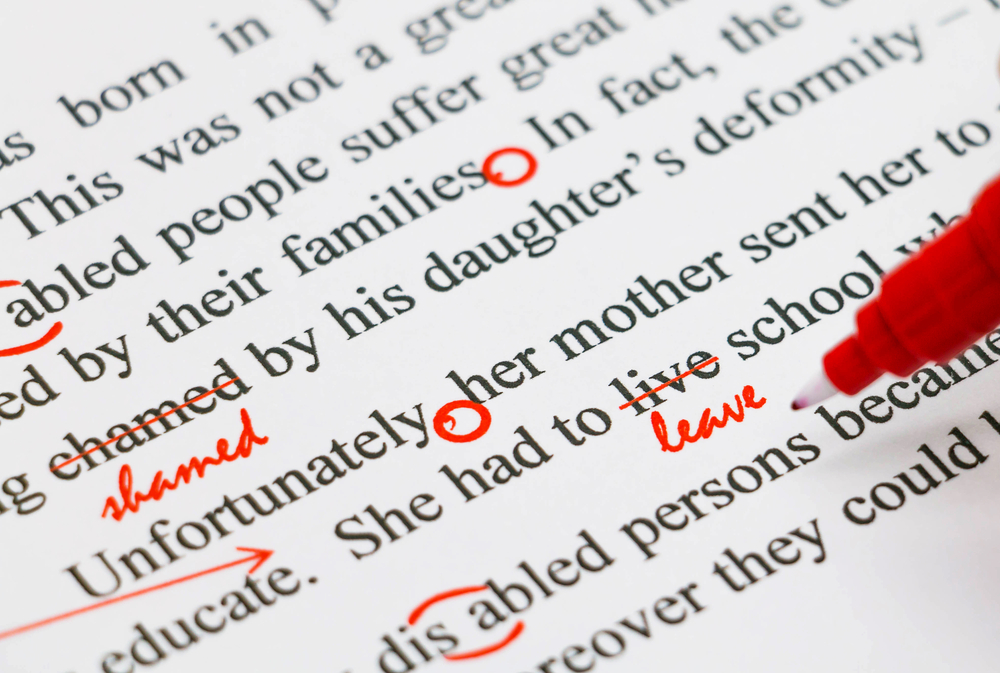Introduction
Editing and proofreading your academic papers is a skill that will help you produce a better final product. It’s also important to be aware of the do’s and donts when it comes to editing and proofreading your papers. This article will give you some tips on how to improve your work as an author or student.
Always use spell check.
Spell check is a great tool for catching spelling errors, grammar mistakes and punctuation errors.
When you’re writing an academic paper, it’s important to check your work for these things. If you have a friend or family member who can help proofread your paper before submitting it to the professor, then that’s even better!
Read the whole paper, not just what you are writing.
When you’re reading a paper, don’t just read what you are writing. Take it all in as you go along and make sure that every sentence has been checked by someone else first.
You will be able to tell if someone has plagiarized because there will be too many similar ideas from other places in the same paper.
Ask for clarification if you don’t understand something.
As you’re editing and proofreading your paper, it is important to remember that an editor is only as good as their ability to communicate. If there is something that you don’t understand, ask for clarification. It doesn’t mean that the editor will take forever trying to explain it in detail; sometimes all they need are a few words or phrases to help them get the point across.
If after asking for clarification on this issue, it still isn’t clear enough for you then let them know what else they can do so that they can come up with an idea of how this could be solved better than before (if needed).
Do not interrupt someone while they are speaking.
Do not interrupt someone while they are speaking.
Do not make a point until the other person has finished.
Don’t talk over someone else or talk down to them if you think their ideas are stupid or wrong; this is rude and insulting, not just to the person you are talking to but also to yourself! If you do this, consider whether it will help your argument at all or if it could possibly even make things worse by making the situation more tense and difficult for everyone involved in the conversation (including yourself).
Proofread before writing a second draft.
Now that you’ve written the first draft, it’s time to edit and proofread.
You can do this by reading through your paper yourself or by having someone else read over it for you. If possible, have someone who knows what they’re doing read it as well so they can help spot any mistakes that might slip past a first read of the document.
Ask friends or family members if they would be willing to read and edit your paper for free! If not, there are plenty of services out there that will do just that (like Grammarly!). Or try checking out our list below!
Get feedback from others if possible, preferably a professional editor or proofreader.
It’s important to get feedback from others if possible, preferably a professional editor or proofreader. It is also good practice to ask for feedback from your professor after the paper has been edited. In some cases, this can help you avoid mistakes that are easy to make when writing without any guidance on how to write correctly in English language.
Some things go without saying but it’s good to be reminded of them occasionally.
- Proofreading is important. The last thing you want to do is send your paper to a professor who hasn’t seen it before and then have them catch errors in the body of their comments.
- Get feedback from others on your work, even if they aren’t experts or students at the same university as yourself. This can help you identify mistakes that may not be obvious to someone who has been working with similar topics for years (or decades).
- If possible, use a professional editor or proofreader who understands what academic writing should look like—and will tell you when something just isn’t right! This person should also have experience working with students from all over the world—even if some areas are more common than others (like British English versus American English). By getting extra eyes on your work before sending it out into the world, there’s less chance of making costly mistakes later on down the line when trying desperately hard not only understand why something went wrong but also fix it properly before publishing anything else again!
Conclusion
Now that you know how important editing and proofreading is, it’s time to get started! Remember, the most successful papers are those that are well edited and proofread, so don’t forget about these two steps. As always, if you have any questions or concerns about your paper or how to go about editing it, feel free to reach out through our contact form. We would love speaking with you!

